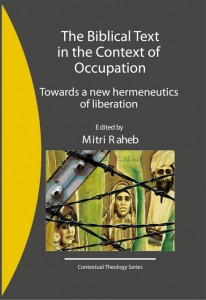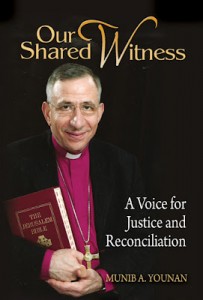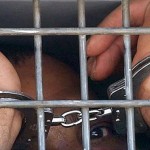One of the Palestinian prisoners on hunger strike has been transfered to the hospital, and his request to be released denied. Read more
At the same time, more prisoners are being arrested. Here is a blog post from Lauren-Whitney Gottbrath, a Young Adult in Global Ministry who has recently had a good friend arrested. Below is her blog prayer for him. UPDATE: Lauren recently wrote and said that Mousa has been released. Loren thanks all for their prayers, but says that he has been profoundly affected by this experience.
Salaam Friends and Family,
As I sat down to write my newsletter on Sunday, I couldn’t stop thinking about some terrible news I had received earlier that day; one of my really good friends, Mohamad (better known as Mousa), was arrested by the Israeli Defense Force right outside his home the night before. At this point no one knows exactly why he was arrested. Unfortunately, that is the sad reality of many prisoners currently within Israeli jails. Israel uses administrative detention to hold prisoners without charging them or giving them a reason for their arrest. Mousa is just one of many prisoners who are under this sort of detention. I have so many things that I could share with you about the last two months, but to be quite honest, it is Mousa’s story that I want to share in hopes that you will feel in some small way the great man that he is and offer your thoughts and prayers for him and his family
Mousa is 22 years old and is from Aida Refugee Camp. I met him through my work at the Lajee Center within the camp. Basically he is my boss there. I work most closely with him since he is the director of the media center of Lajee. At the age of 22 with no formal training, he is one of the most talented photographers and filmmakers I know. He is more creative and knows more about the craft than do I, even having graduated from college. From the time I started working at the Lajee Center in October, I have learned more about filmmaking and photography than I did throughout the last four years. He also teaches the kids that come to the center about photography, film and radio. He gives them an outlet to share their story.
Not only is he a fantastic photographer and filmmaker, but he is also one of the most kind-hearted guys I have met. He is always welcoming me into his home for lunch or calling me to invite me to go with him and others from the center to the Dead Sea or to a bbq. I will never forget the hospitality that he showed both my parents and friends on their visits. He arranged for my family to spend the entire day at the camp and have lunch with his family. He also made sure there was enough room on a bus for all my friends to go to a dance festival…something that most visitors never experience. Just two weeks ago when I was having terrible tooth pain, he called and texted me time and time again to make sure I was feeling better. And he would be the first person I would call if I were ever in need of any help.
Over the last few days, I keep thinking about what he must be feeling or thinking about right now, but no part of me can even imagine what he is feeling. It makes me sad that something like this can happen to such an amazing person. He certainly doesn’t deserve it. I am angered that this is the reality in this place I live. Sadly, many of my friends here could tell you the same exact story of their friends and family members. It isn’t something I understand no matter how hard I try.
In the Lajee Center there is an exhibit of some of the photographers entitled Hopes and Nightmares. The photographers took photos, one representing their dream and one representing their nightmare. Mousa’s still hangs on the wall (he took the photos when he was 16 years-old). He had dreams of becoming a professional football player, playing on the Palestinian National Team, but his nightmare was being arrested and taken away by the occupation. I have heard him tell visitors to the center about these photos time and time again and sadly his nightmare has come true. (follow link to see his photographs, 8th one down on the screen)
I pray that God is watching over Mousa and his family. I pray that Mousa is feeling the love that his friends are sending from all over the world. I especially pray that he will be back home and in the center soon. Mousa is a friend that I quite possibly may never see again due to this occupation; but he is a friend that I certainly will never forget.
I know that this is far from a newsletter, but it is something I needed to share, far more than sharing about my many trips to the Dead Sea. I promise I will get a “newsletter” out soon enough, but in the meantime, I ask that you too pray for Mousa and his family because right now that is all we can do.
I have dreams of going into the center on a Friday to find Mousa there, sitting in “his” chair (only to give it up to me as he always does) ready to start a day’s work… I have nightmares of never getting to see him again.
Thank you for listening. If you have any questions, please don’t hesitate to ask.
Laurin-Whitney Gottbrath lwgottbrath@gmail.com



